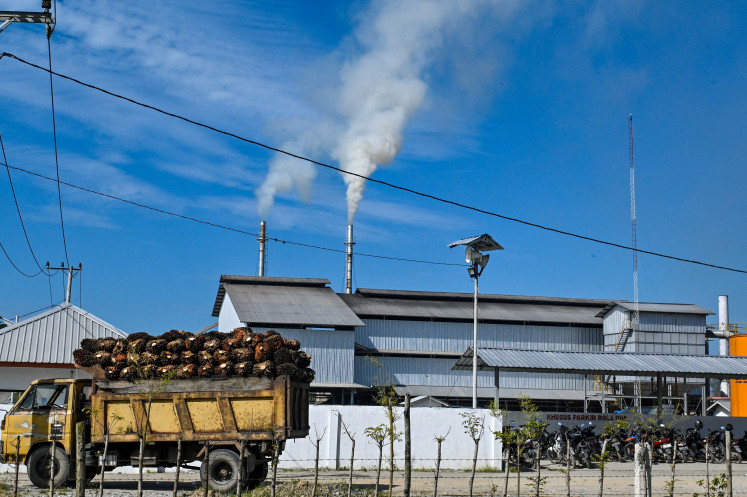Popular Reads
Top Results
Can't find what you're looking for?
View all search resultsPopular Reads
Top Results
Can't find what you're looking for?
View all search resultsRI women ‘conquered’ Madagascar
A new research report shows that 30 women of Indonesian descent settled in Madagascar about 1,200 years ago, raising the possibility that the island nation was settled through a small, perhaps even unintended, transoceanic crossing, instead of a large-scale planned colonization
Change text size
Gift Premium Articles
to Anyone
A
new research report shows that 30 women of Indonesian descent settled in Madagascar about 1,200 years ago, raising the possibility that the island nation was settled through a small, perhaps even unintended, transoceanic crossing, instead of a large-scale planned colonization.
The study titled “A small cohort of Island Southeast Asian women founded Madagascar” published by Proceedings of the Royal Society B reveals that Malagasy, a term that represents people living in the island located off the east coast of Africa, have biological and linguistic connections not only to east African populations but also to Southeast Asia, particularly Indonesia.
Herawati Sudoyo, a senior research fellow of the Eijkman Institute for Molecular Biology in Jakarta said on Monday that Malagasy people descended from the East and West as their ancestors came from both Africa and Indonesia.
“Madagascar was settled approximately 1,200 years ago by a very small group of about 30 women, and about 93 percent of them were of Indonesian descent. Their contributions, not only in terms of genetics but also in terms of culture and language, have dominated the developments occurring in the nation until now,” she told a press conference.
A large number of studies have revealed both biological and linguistic links between Madagascar and East Africa, as well as between the island and Southeast Asia, offering unequivocal evidence of linguistic, ethnography, archaeology, and even genetic links.
A study conducted in 1614 by Luis Mariano, a Jesuit priest, showed that many words used by the Malagasy people came from spoken language of Ma’anyan, a Dayak tribe living along Barito River in the southeastern part of Kalimantan. Some words in Malagasy language also have similarities with old Javanese and Sanskrit languages.
Yet, the question as to when Madagascar was first settled and how the settlement process took place remained unresolved until five scientists led by Murray P. Cox, a bioinformaticist from the University of Arizona, found archaeological and paleo-environmental evidence showing that people settled in Madagascar only recently.
“This scientific publication can give answers to the settlement process of the Madagascar which received, surprisingly, significant contributions from Indonesian women,” said Herawati, one of the research’s team members.
Throughout the course of the study, which began in 2005, scientists carried out mitochondrial DNA tests of 2,745 individual respondents from 12 islands in Indonesia, consisting of Alor, Bali, Flores, Java, Lembata, Mentawai, Nias, Pantar, Sulawesi, Sumatra, Sumba and Timor, and tested 266 individual from three isolated populations in Madagascar; Mikea (hunter gatherer people); Vezo (fishermen); and Merina, indigenous people who live in the highlands.
“Until now, we haven’t found any Malagasy [genetic markers] in individuals other than those who are in Madagascar,” said Herawati.
The study shows 58 people or 22 percent out of 226 total respondents from Madagascar have the Malagasy marker, while only 45 people or 2 percent of 2,745 Indonesian respondents have the Malagasy marker.
From the demographic parameters in the study, the scientists concluded that the maternal Malagasy line was dominated by Indonesian people. They said 30 Indonesian women bequeathed maternal mitochondrial DNA to Malagasy people. Of 226 respondents from Madagascar, 193 people have Indonesian haplogroup.
Despite unequivocal evidence of biological links between the Malagasy and Indonesian people, the ethnicity of those 30 Indonesian women belonged to remained unknown.










